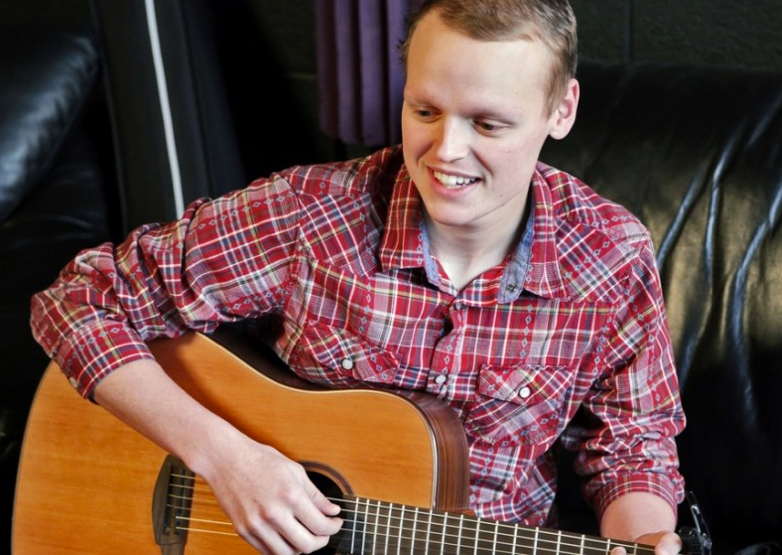What would you do if you were dying?
On June 28, 2013 by Admin
If you were faced with months to live, how would you say goodbye to the ones you love? Read more about the inspiring story of 18-year-old Zach Sobiech and how he dealt with his death.
By Kevin Woo, The Asian Parent | June 27, 2013
What would you do if you found out you were going to die? Would you make a bucket list and start checking off the things you had only dreamed of doing? Maybe you’d skydive. Perhaps you would travel.
If you’re Zach Sobiech you would write a song about how to live your life in the face of death and how you say good-bye to those you love. You’d call the song, “Clouds.”
Telling a teenager that he’s going to die
At 14 Sobiech was diagnosed with osteosarcoma, a form of bone cancer that primarily strikes children. In four years he went through 10 surgeries and 20 rounds of chemotherapy.
He died on May 20, 2013 at the age of 18.
Fulfilling his dreams and saying goodbye
Sobiech was an aspiring folk-singer. His song described how he was facing death and how he felt about those who would be left behind.
Sobiech put his song on YouTube in December 2012 and it went viral. The song has had six million views since its posting. His story also touched many in the music industry including such artists as Colbie Caillat, Jason Mraz and Sara Bareillles who have released tribute versions of the song. To date 156,000 copies of “Clouds” have been sold and the proceeds have been donated to childrens cancer research.
How to deal with the grief of losing a loved one
Those left behind after Sobiech’s death may have the most difficult task – dealing with their grief. Dr. Kristine A. Kevorkian, a specialist in thanatology, the study and science of death and dying, says people should expect the healing process to take time.
“I suggest people truly take it one step at a time,” says Kevorkian.
“I encourage parents to seek out grief counseling from a trained grief therapist. If the parents are members of a faith based community they might want to seek help from someone there.”
Everyone grieves differently
She says that the most important thing to recognize is that everyone grieves uniquely and this might cause issues in relationships.
For example, women might grieve more outwardly and be more talkative about their feelings. Whereas men might bury themselves in work to try and push aside their feelings of loss. Friends, who think they’re being helpful might say something like, “You’re not over that yet?”
Learn how to cope with loss
“It’s important for couples to receive some sort of grief intervention within the first six months of the loss or odds are that the couple will not last,” says Kevorkian.
“A friend of mine lost her son when he was 12. Her husband coped in unhealthy ways, turning to drugs, while my friend sought out support and therapy. She did all she could to help her husband, but he was unwilling to get the help he needed. They eventually divorced, which added another level to their grief.”
Kevorkian says that the best way to cope is to “learn” how to cope with loss.
“Speaking with a trained grief counselor would be best to help provide education about the grieving process and therapy.”
Archives
- February 2019
- January 2019
- September 2018
- June 2018
- March 2018
- February 2018
- July 2016
- March 2016
- January 2016
- November 2015
- February 2015
- January 2015
- December 2014
- June 2014
- May 2014
- February 2014
- January 2014
- October 2013
- August 2013
- July 2013
- June 2013
- May 2013
- April 2013
- March 2013
- February 2013
- January 2013
- December 2012
- November 2012
- September 2012
- May 2012
- April 2012
- March 2012
- June 2009
Calendar
| S | M | T | W | T | F | S |
|---|---|---|---|---|---|---|
| 1 | 2 | 3 | 4 | 5 | ||
| 6 | 7 | 8 | 9 | 10 | 11 | 12 |
| 13 | 14 | 15 | 16 | 17 | 18 | 19 |
| 20 | 21 | 22 | 23 | 24 | 25 | 26 |
| 27 | 28 | 29 | 30 | |||

